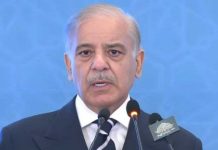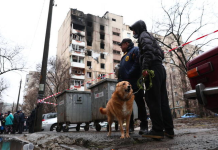KABUL – Afghanistan’s new de facto rulers, the Taliban, have reopened the Torkham border crossing which had been closed after the fall of Kabul on Sunday. The Taliban have also drastically reduced border taxes on several items, particularly, sugar and petrol. However, uncertainty continues to mar Kabul, where gold and currency markets have not opened and Afghanistan currency, the Afghani, traded low.
Hundreds of trucks were stranded in Afghanistan and cross-border trade came to a complete halt as the country’s capital descended into chaos.
The Taliban had already taken control of the Torkham border crossing before they captured Kabul over the weekend. They hoisted their white flag on their side of the border. With Afghan authorities losing control of the border-gate to the Taliban, Pakistan closed the crossing on Sunday.
On Tuesday when the border crossing formally reopened, the Taliban were the only authority in Afghanistan.
Vehicles loaded with goods began to move Monday night after the Taliban and Pakistan border authorities concluded preliminary talks, a businessman associated with Pak-Afghan trade told SAMAA Digital.
Reduced duties
From Tuesday, the Taliban have announced a new tax regime. They have reduced duties and taxes on various goods being imported to Afghanistan.
SAMAA Digital has obtained a copy of the Taliban order which lists rates of taxes and duties for 159 items and provides a comparison of the old and new charges.
The Taliban have slashed duties and taxes up to 90%, while the minimum reduction is 50%. The taxes on white cement have been reduced from Afs2450 to Afs368 per tonne– an 85% reduction. The taxes and duties on petrol have been reduced by 50% and on sugar by 60% – the two items that could affect the economy.
The Taliban have also decreased taxes and duties on plasticware by 80% and on glassware by 70%. They have announced a major reduction for construction material, medicine, and food items, while the concessions for shampoo, soap, and other toiletries are limited to 50%.
Torkham is the second border crossing to come under the Taliban tax regime. Earlier, the militants had imposed taxes on 376 items when they took control of the Spin Boldak border crossing near Pakistan’s Chaman in July.
Businessmen associated with the Pakistan-Afghanistan trade, however, say that situation is different now. At the end of July when the Taliban imposed taxes, the Ghani administration controlled large areas in Afghanistan and charged taxes when vehicles carrying goods moved beyond Taliban-controlled parts. It led to double taxation. Importers first had to pay to the Taliban and then to the Afghan government.
Now, Afghan importers are paying only to the Taliban. They are satisfied with low taxes, though they continue to worry about the safety of their families, a businessman said.
Heavy truck movement
Within 24 hours after the first truck moved, a total of 727 vehicles crossed the border in either direction, said Shahid Hussain, a former senior vice-president of Sarhad Chamber of Commerce and Industry.
From Pakistan, 372 vehicles carrying goods entered Afghanistan, and from the other side, 355 vehicles arrived in Pakistan with goods. Another 116 trucks that had offloaded cargo in Afghanistan also returned to Pakistan.
Currency depreciates
While money changers have not opened after Sunday’s events, private exchanges saw Afghanistan’s currency, the Afghani, continue the downward trend.
“When rumours about Ghani’s resignation began to spread [earlier last week] dollar appreciated against the Afghani from Afs80 to Afs100. The Afghani was able to regain some of its value [during the week]. However, with the fall of Kabul dollar is being sold between Afs80 and Afs90,” an Afghan journalist told.

















